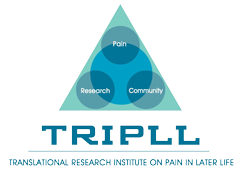Abstract
AIM:
The present cross-sectional study investigated the relationship between frailty and chronic pain, activities of daily living (ADL), and physical activity in community-dwelling older adults.
METHODS:
Participants were 379 older adults who attended community-based exercise classes. Outcome measures were frailty as determined by the Kihon Checklist, full pain assessment (including the sensory, emotional and cognitive aspects of pain), ADL and physical activity. These outcomes were evaluated using validated tests and instruments. Assessments were carried out before beginning the exercise classes. Outcome measures were compared for participants with and without frailty. Frailty was defined as a total Kihon Checklist score ≥7, and chronic pain as the presence of related symptoms within the past month that had continued for at least 6 months and corresponded with a numerical rating scale score of at ≥5 at the site of maximum pain.
RESULTS:
In total, 134 (35.4%) participants met the frailty criteria; 60.4% of this group had chronic pain. The frail group had significantly worse scores for the sensory, emotional and cognitive aspects of pain, ADL and physical activity than the non-frail group (P < 0.05). Logistic regression analysis adjusted for age and sex showed the sensory and emotional aspects of pain were associated with frailty.
CONCLUSIONS:
For community-dwelling older adults with frailty, chronic pain can negatively influence sensory, emotional and cognitive aspects of pain, leading to a decline in ADL and lower physical activity. Full pain assessment focused on sensory and emotional aspects of pain is important to identify frailty among older adults. Geriatr Gerontol Int 2018
To read the full article, click here.
